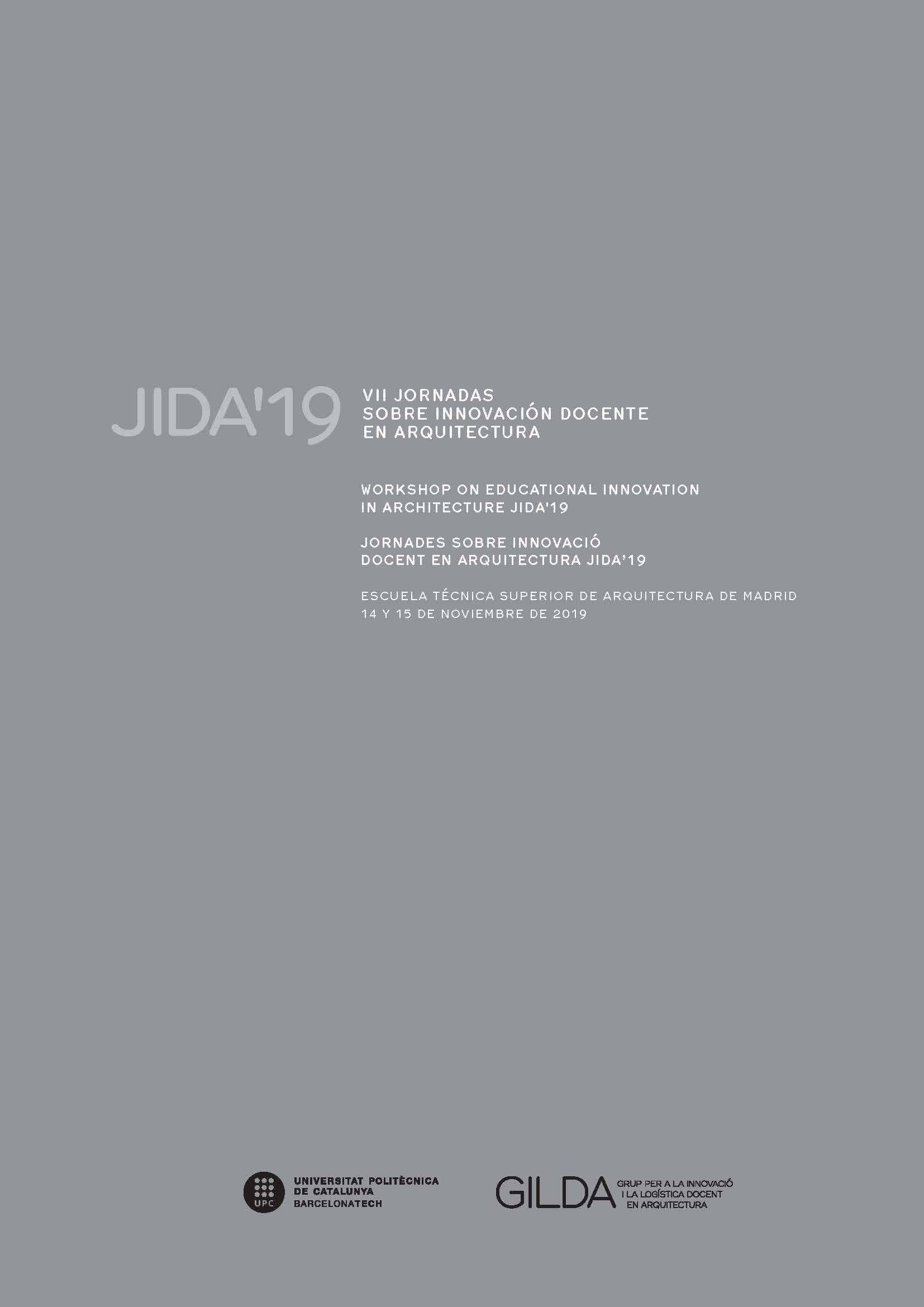Water and citizenship: didactic strategy for training in climate change scenarios
DOI:
https://doi.org/10.5821/jida.2019.8373Abstract
Facing the imminent process of change in climatic conditions and the scarcity of water resources in the city of Santiago de Chile, the opportunity to explore how citizen participation could operate as a didactic strategy for the architect training is presented. Through a social innovation project, new abilities and knowledge are developed in order to face the socio-environmental conflicts linked to the increase of the drought in the city. The instance seeks to explore participatory strategies for the recovery of rainwater in public spaces of the city allowing different levels of student’s involvement in a professional project. The aim is to explore the architect's new role as a mediator between the inhabitants and the interdisciplinary teams, creating the collaborative and participatory work environment of the future.References
ADAMS, E. y INGHAM, S. (1998). Changing Places: Children’s Participation in Environmental Planning. London: The Children’s Society.
CHANDIA-JAURE, R. y GODOY, D. (2017). Paisajes Vulnerables. Relecturas colectivas del territorio rural andino. Santiago de Chile: Universidad Tecnológica Metropolitana.<https://sitios.vtte.utem.cl/principal/wp-content/uploads/sites/2/2018/04/paisajes-vulnerables-relecturas-colectivas-territorio-rural-andino-utem.pdf> [Consulta 13 de septiembre de 2019]
GIMENEZ, P. y UGARTE, J. R. (2014). PolÃtica Nacional de Desarrollo Urbano: Ciudades Sustentables y Calidad de Vida Hacia una Nueva PolÃtica Urbana para Chile (P. Gimenez & J. R. Ugarte, Eds.). Santiago de Chile: Ministerio de Vivienda y Urbanismo, Gobierno de Chile. <https://cndu.gob.cl/wp-content/uploads/2014/10/L4-Politica-Nacional-Urbana.pdf> [Consulta 11 de septiembre de 2019]
HART, R. (1997). Children's Participation: the theory and practice of involving young citizens in community development and environmental care London: Earthscan Publications.
LEFF, E. (2011). “Sustentabilidad y racionalidad ambiental: Hacia “otro†programa de sociologÃa ambiental.†en Revista Mexicana de SociologÃa, 73(1), 5-46. <http://www.scielo.org.mx/pdf/rms/v73n1/v73n1a1.pdf> [Consulta 13 de septiembre de 2019]
MOISSET, I. (2014). “Arquitectura y ambiente: una perspectiva latinoamericana†en Estudios del Hábitat, 12(2), 83-95. <https://revistas.unlp.edu.ar/Habitat/article/download/1135/pdf> [Consulta 13 de septiembre de 2019]
NÚÑEZ COBO, J., GARREAUD, R. y VERBIST, K. (2018) “Chile†En NUÑEZ COBO ,J. & VERBIST, K. Atlas de SequÃa de América Latina y el Caribe. Paris: Centro del Agua para Zonas Ãridas y Semiáridas de América Latina y el Caribe (Chile) <https://unesdoc.unesco.org/ark:/48223/pf0000265894.locale=es> [Consulta 13 de septiembre de 2019]
STÖCKER, K. (1964) Principios de didáctica moderna. Buenos Aires: Kapeluz
UNIVERSIDAD TECNOLÓGICA METROPOLITANA. (2011). Modelo Educativo. Lineamientos educativos y enfoque curricular. Santiago <https://vrac.utem.cl/wp-content/uploads/2017/05/modelo_educativo.pdf> [Consulta 11 de septiembre de 2019]
VÉLEZ GONZÃLEZ, S. (2011). La experiencia de la ENHSA: ¿cuál será el futuro en la formación de los arquitectos? Dearq, (9), 18-29. <https://doi.org/10.18389/dearq9.2011.04> [Consulta 15 de septiembre de 2019]






















